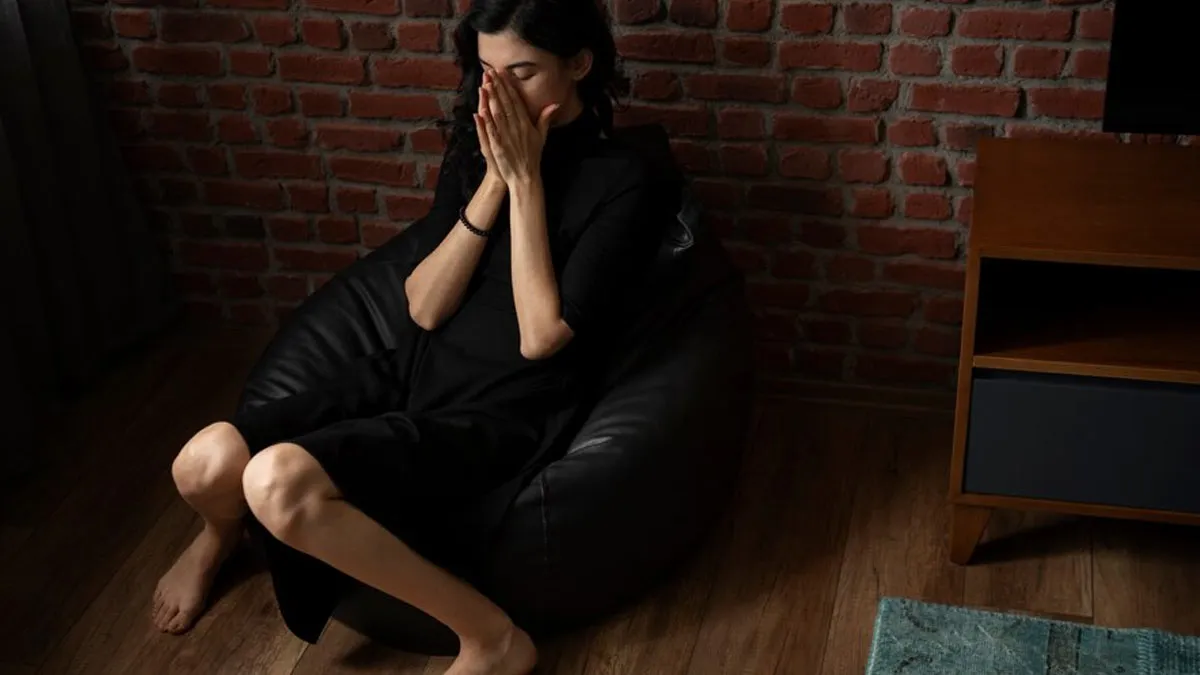
As per a comprehensive study published in the Journal of Family Medicine and Primary Care, the prevalence of depression is seen in an average of 41% women in India as compared to 24% in men. This percentage is alarming as untreated depression can worsen health in general. While there are several treatments available for depression, a holistic approach can help beat depression and promote a healthy lifestyle in the long run. To know more how Ayurveda can help combat depression in women, we reached out to Dr P.T. Keshavan Nambisan - Co-founder and Medical Director of UWAY Health who answered all our queries for better understanding.
Table of Content:-
What is the connection between your emotional well-being and the foods you eat?
“Yes, there is indeed a strong connection between emotional well-being and the foods we eat. According to Ayurveda, food not only nourishes the body but also impacts the mind and emotions,” answers Dr Nambisan.
Different types of foods are categorized based on their effects on mental states—Sattvic foods promote calmness and clarity, Rajasic foods may lead to restlessness, and Tamasic foods can cause lethargy or depression. Moreover, the gut-brain axis, a concept that Ayurveda has long emphasized, demonstrates how the quality and type of food we consume influence neurotransmitter activity, such as serotonin, which is crucial for maintaining a good mood. By choosing the right foods tailored to our constitution and mental state, we can foster better emotional health and balance.
Also Read: What Are Vata, Pitta, Kapha, The Three-Body Types In Ayurveda: Here's How They Influence Health

Are There Any Symptoms of Vata Imbalance?
In Ayurveda, stress and anxiety are often seen as imbalances in the Vata dosha. Sharing about the symptoms of vata dosha, Dr Nambisan says, “Stress and anxiety are commonly associated with an imbalance in the Vata dosha, which governs movement and activity. Symptoms like restlessness, trouble sleeping, overthinking, or feeling overwhelmed are typical signs of Vata being out of balance. Addressing these symptoms with grounding practices, such as a warm diet, oil massages, and calming routines, can help restore equilibrium.”
How can Panchakarma therapy aid in detoxifying the mind and body to alleviate symptoms of depression in women?
Panchakarma therapy is a potent Ayurvedic detoxification procedure that cleanses the body and mind, hence reducing depressive symptoms. It balances the dosha and eliminates stored poisons (ama). Panchakarma uses therapies including Nasya (nasal cleaning), Virechana (purgation), and Abhyanga (oil massage) to assist soothe the nervous system, lower stress levels, and enhance mental clarity. It is a useful treatment for women who are depressed since it corrects mental and physical imbalances, revitalizing the body and mind.
Does Ayurveda provide specific recommendations for addressing postpartum depression in women?
According to Dr Nambisan, “Ayurveda recognizes the postpartum period as a critical phase where imbalances in Vata and Pitta doshas can lead to emotional disturbances like postpartum depression.”
During this time, the following practices can help restore physical and mental balance:
warm oil massages (Abhyanga) to pacify Vata
consuming nourishing and digestible foods like moong dal khichdi, ghee, and rice (Ahara)
maintaining mindfulness and regular sleep routines (Vihara)
using Ayurveda medicines (Oushadhi) under a doctors guidance
Also Read: Expert Explains Impact Of Undiagnosed Or Untreated Postpartum Depression
How does Ayurveda view depression, particularly in Women
“We often encounter women, especially in cities like Bangalore, who present with issues like lower back pain. Interestingly, their MRI scans may show no physical abnormalities, but these symptoms are often early signs of depression. Ayurveda views depression in women as a complex condition influenced by a delicate interplay of physical and mental factors. Women’s increased susceptibility is partly due to hormonal sensitivity, which Ayurveda attributes to an imbalance in the pitta dosha, while vata plays a key role in disease manifestation. However, depression remains one of the most challenging diseases to treat. So ensure you go to a doctor who is experienced,” concludes Dr Nambisan.
Also watch this video
How we keep this article up to date:
We work with experts and keep a close eye on the latest in health and wellness. Whenever there is a new research or helpful information, we update our articles with accurate and useful advice.
Current Version